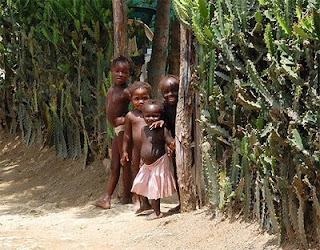The
New York Times’ Nicholas Kristof aptly describes the connections between poverty and lack of access to family planning in a recent op-ed, using a Haitian woman named Nahomie as an example. He rightly argues that we
won’t be able to end poverty until women are able to choose how many children to have. He also notes that relative funding levels for family planning have decreased in recent decades, and that development professionals’ attention has shifted to other issues. Yet
201 million women around the world still have an unmet need for family planning.
One of the few off notes in Kristof’s article, I think, is his portrayal of family planning as a difficult, challenging intervention. Of course, it is more complicated than simply giving birth control pills to women and condoms to men. But community health workers with little formal education have been successfully trained to deliver family-planning services to remote communities in developing countries.
While I recognize he has space limitations, Kristof neglected to mention that in Haiti, poverty and lack of access to family planning are linked to severe environmental degradation and natural disasters. A 2006 U.S. Agency for International Development (USAID) report found that “the root causes of environmental disaster in Haiti are acute poverty, rapid population growth, and unplanned urbanization.” To meet their daily needs, the rapidly growing population resorts to unsustainable agricultural and energy practices that deforest and erode the countryside—or move to increasingly crowded cities.
At a Wilson Center presentation in August 2006, USAID’s Rochelle Rainey reported that 40 percent of Haitian women wished to use contraception but did not have access to it. Modern contraceptive methods are used by only 23 percent of the population, contributing to a total fertility rate of 4.9 children per woman. As Ronald Toussaint, a Haitian biodiversity specialist, said: “If we don’t address population issues, it is like the Creole phrase, ‘wash your hands and then rub them in the dirt.’”
Photo: Children in Haiti. Courtesy of Flickr user Billtacular.
 A Publication of the Stimson Center.
A Publication of the Stimson Center.




